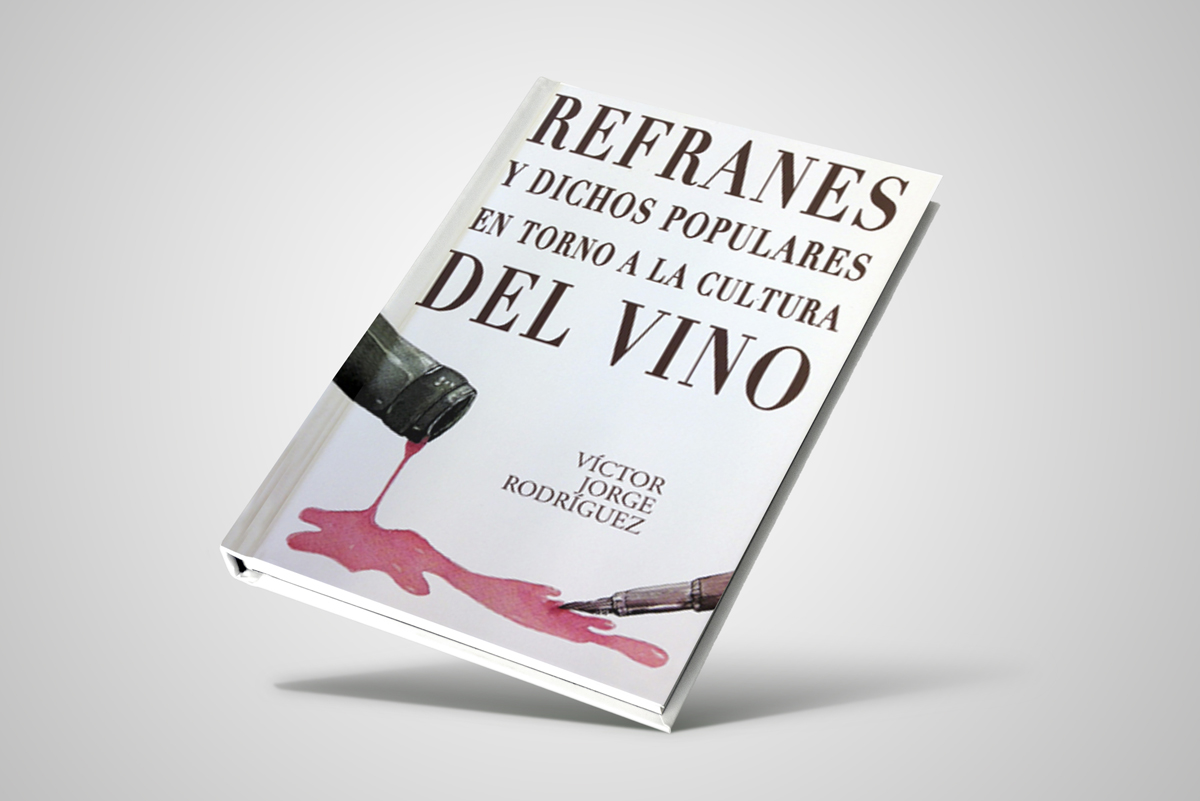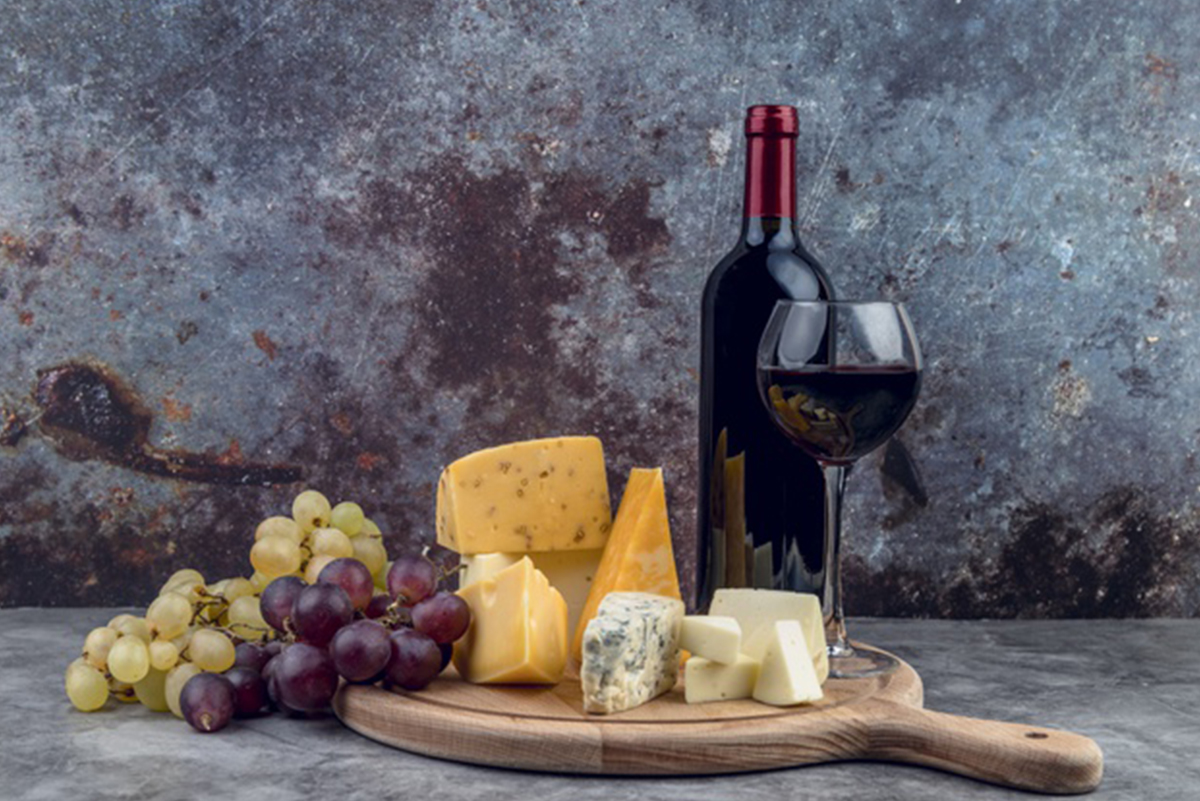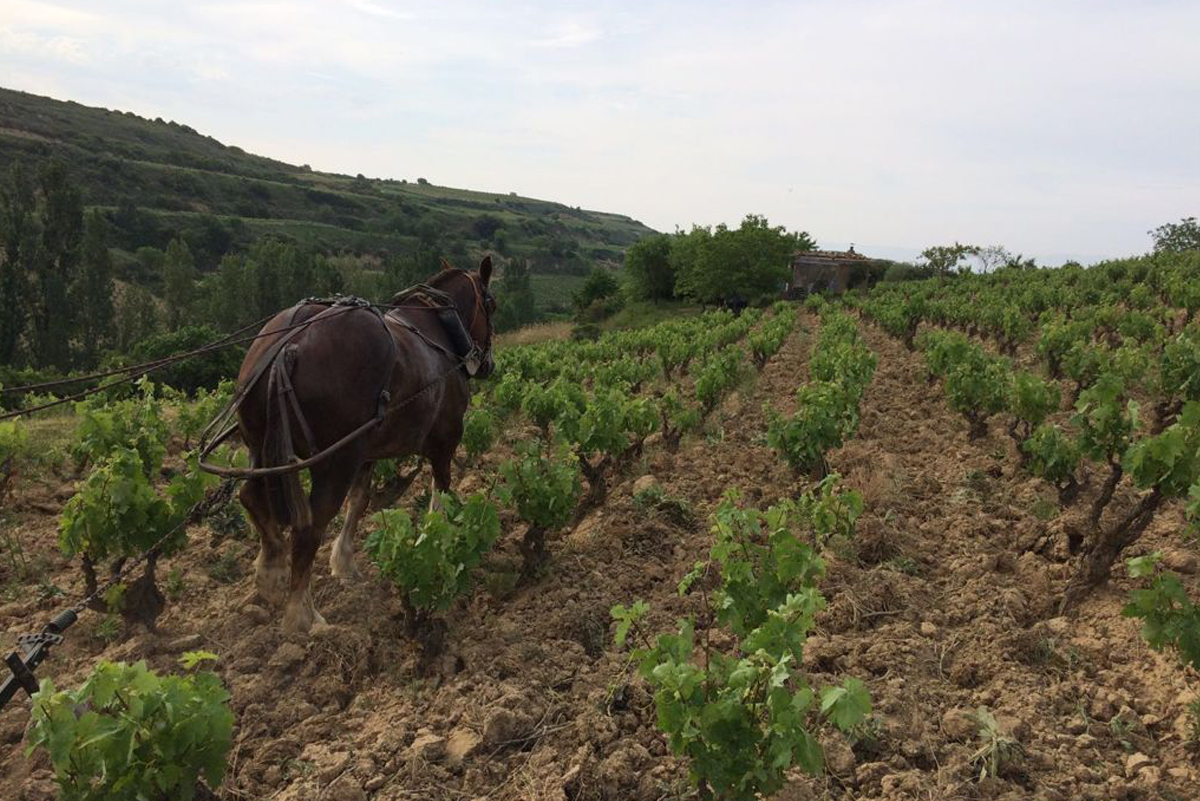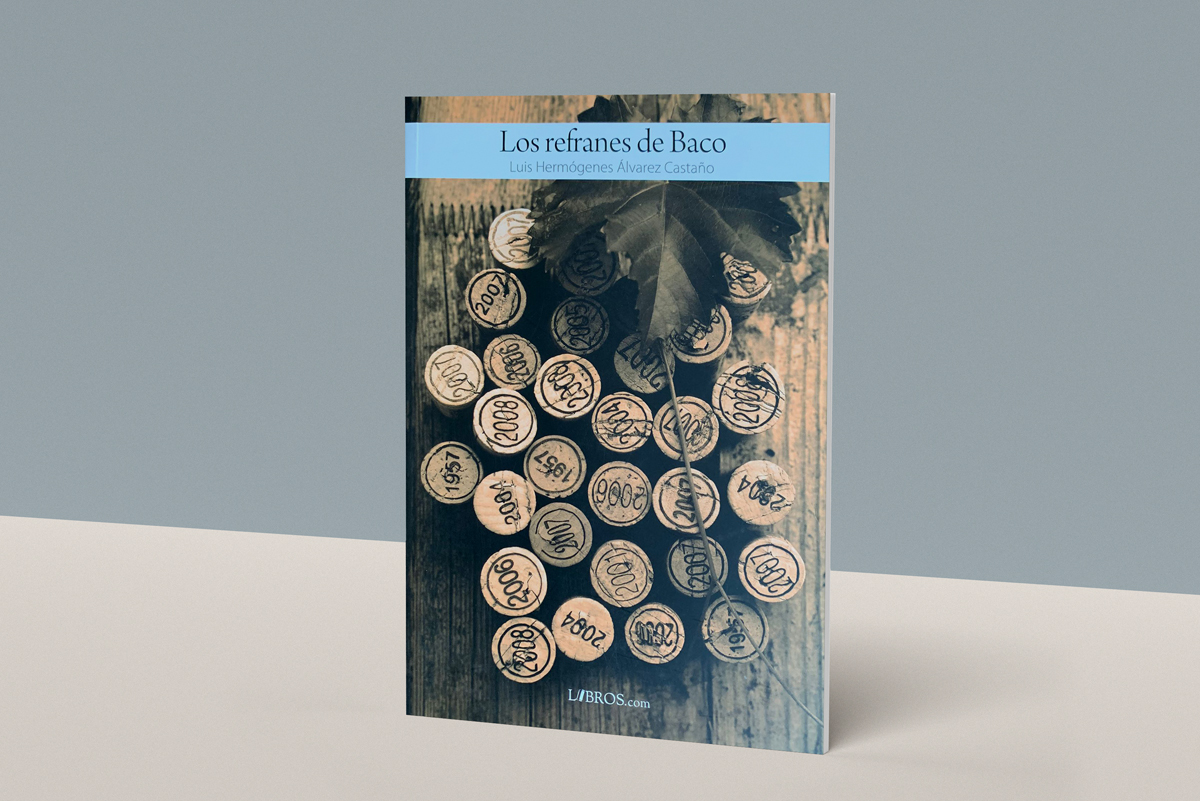WINE AND LETTERS (IV): The wine book of sayings
Nowadays, sayings are in the doldrums, and no less so the so-called, in Spanish, “refraneros”, understood not in the academic sense of collection of sayings, but in the colloquial sense of people who are prone to foist them upon others without rhyme or reason, that is, a person who uses sayings all the time. The reasons are clear. A good part of the sayings contains stomach-turning moralising, if not outright vomiting, and this is often the purpose of those who preach them. Prosodically speaking, if I my say so, they are like pesky flies or ball-busters.
However, there are sayings that have a pure and suggestive descriptive value, and there are situations in which they fit like a glove. Even the traditional swearword, the old rude word, can have its appropriate and brilliant moment, even for the most squeamish.
A repertoire for such occasions – the wit to introduce them is not something that Salamanca teaches -, in relation to the subject that happily brings us together here, is the book “Refranes y dichos populares en torno a la cultura del vino” (Popular sayings and proverbs about wine culture) by Víctor Jorge Rodríguez, self-edited -which is perhaps a symptom, for the second time, or may be a consolation or perhaps a ‘proverbial’ stumbling over the same stone-, in May 2015.

We have here a very extensive repertoire of sayings in successive chapters relating to the exaltation of wine and its health benefits, the way in which it should be drunk, both on its own and with other foods, its physical and mental consequences, both with regard to friendship and “love” (I leave it in inverted commas because most of the sayings here tend to be as sour as vinegar), or marriage. …, as well as other “old sayings”, related to the care of the vineyard and wine production, and to the different geographical areas of production. The fitting conclusion is: “Wine for everyone. Wine always”. It also has a previous introduction in which the nature of the sayings as an element of popular culture is highlighted, and it is recommended to ‘drink’ them in small sips, savouring them, and in good company.
So there, they remain at the disposal of your wit. (When these lines were well-advanced, I became aware of the self-editing. The book may not be easy to find, but there are plenty of collections of sayings *). I’m afraid I did not heed the advice, and its massive ingestion has generated a certain heaviness. For a moment I thought that, to add a touch of humour to the string of sententious phrases, I might try to offer their literal translation into Spanish. Also, the other way round. It is good fun. Besides, this could contribute to broadening Shakespeare’s language, since in England, logically, wine lacks a popular breeding ground, and the countryside is a field for the expansion of noble animals, the protagonists of many English sayings, particularly the horse, but also cats and dogs, which apparently fall from the sky in torrents[i]. A couple of trials made me give up the idea, there were no sparks.
In any case, and taken with a pinch of salt – I’m afraid I keep using idioms, surely it is like the biblical teaching of the beam and the mote – a good proverb can have its moments. Making categories about what is good is always subjective. I like the old and metaphorical ones: “subirse a la parra”[ii], “caerse de la parra”[iii] , “salir a por uvas”[iv], “nos dieron las uvas”[v], etc. Real and not metaphorical must have been the above-mentioned “te la han dado con queso”[vi]. (An infallible and universal trick because, as our book tells us, that “wine with cheese tastes like a kiss” is almost literal in at least seven languages; in any case, it is not advisable to abuse the cliché, the best way to destroy a magnificent wine is to drink it with a magnificent and inadequate cheese).
[i] The famous English saying: “It’s raining cats and dogs”.
[ii] It means “to get high and mighty”, but literally translated it means ‘to climb up the vine’.
[iii] It means to suddenly become aware of something, but literally translated it means ‘to fall off the vine’.
[iv] It means “to be with the head in the clouds”, distracted or absent-minded, but literally translated it means ‘to go out to get some grapes’. Today it is widely used in football when the goalkeeper goes for the ball inappropriately leaving the goal unprotected.
[v] It means something like we’ll be here all day or “until the cows come home”, but literally translated it means ‘they gave us the grapes’.
[vi] It means to be fooled, “to be taken for a ride”, but literally translated it means ‘you have been given the wine] with cheese’. When the old winemakers wanted to sell a poor-quality wine, they offered it with a portion of strong cheese that limited the ability to taste other flavours.

I try to avoid the phrase “al pan, pan y al vino, vino” which, behind its innocence, often hides, or so I thought, a belligerent pretension. English speakers make it clear in their way of saying it: “to call a spade, a spade”. I stood by the belligerence, as I wrongly identified “spade” with the Spanish “espada”, that is, “sword”, falling into the trap of the false friend. You can check it at:
http://falsosamigos.com/2012/07/spade%E2%89%A0espada/
“Spade” therefore comes from the Germanic “spate”, which is a non-belligerent spade – it seems to have been particularly used by beer brewers, as the brand name of one of them attests – or also a fork. However, let it be said that in a Latin dictionary I found “spatha” referring precisely to the swords used by the barbarian peoples of the north, because the Roman sword was called “gladius”, hence gladiators. It should also be noted in my defence that the English call “spade” the suit of “espadas” (swords) in the Spanish deck of cards and its equivalent (?) “pique” in the French deck.
In short, writing is always making mistakes. If you are interested in further muddling up the issue, you can check Wikipedia, and even the following page which blames the muddle on none other than Erasmus of Rotterdam’s translation of Plutarch’s Apothegmae:
https://wordhistories.net/2018/07/21/call-spade-spade/
Since this is getting too long, as is my nature, it does not seem appropriate to make a further selection from among the hundreds of proverbs that exist. For that reason, I am only going to dwell on two (already mentioned) because of their relevance in the context of MacRobert & Canals: “El pan cambiado y el vino acostumbrado”[i] and “Donde buenamente quepa, viñador, planta una cepa”[ii].
The former is to say that when it comes to bread, we like to try new things, but when it comes to wine, once the taste is established, there is no one who wants to change it. This is, of course, what we young wineries complain about, the difficulty of changing the habits of wine consumers. As we know, “one man’s meat is another man’s poison”, so we have friends who own century-old wineries who complain that today their customers, like society itself, are only looking for the latest novelty. The big wineries do not complain about anything, but rather about the nuisance that the small ones are.
The latter saying, of course, dates from before the mechanisation of the countryside. Yields were those natural to the land, and not those forced by artificial means. Proof of the truth of the saying are the plantations in our vineyards of “El Barranco del San Ginés”, in Laguardia, and El paraje de la Virgen, in Lanciego, the former declared a singular vineyard, the latter in the process of being declared one.
It seems to be a scientifically proven fact that the size of the butts of draught and pack animals has been the most accurate yardstick for measuring widths throughout history. It determined in its time – the sum of two butts – the width of the carts and carriages pulled by them, from there it went on to railway wagons, and consequently to the width of roads and railways, then tunnels, and naturally to the objects transported, even war rockets themselves. We can only add the Italian saying: “sè non è vero, è ben trovato” (if it is not true, it is well found).
[i] Change the bread, but drink the customary wine.
[ii] Where it fits, vinedresser, plant a vine.

There is no doubt that this size determined the way the vines were planted when horses and mules were essential working tools; respecting the necessary distance and the distance derived from their inevitable contortions and turns, the vines were planted where they would fit. The square was used rather than the row, because the plough passes thus left less space to complete the work by hand with the hoe. Yields were obtained by the accumulation of vines – rainfall was the other variable to be taken into consideration – and there was no question of chemically forcing the production of individual vines. To a certain extent, the slopes were not bothersome, as there was no way of levelling them. In El Barranco we have found that the width is 1.40 metres, while in Lanciego it is 1.60 metres, not all the butts are of the same size as we know, although on the other hand it could also happen that it was a lake or tank already built -the capacity of these was usually adapted to the land owned-, which determined the quantity of grapes that could be produced and therefore the number of vines that had to be planted.
* In fact, having finished these lines, rummaging through old books, I came across “Los refranes de Baco” (Bacchus’ Sayings), a splendid and well-ordered collection by Luis Hermógenes Álvarez del Castaño, published by Libros.com, in its second edition of March 2014.





Leave a Reply
Want to join the discussion?Feel free to contribute!